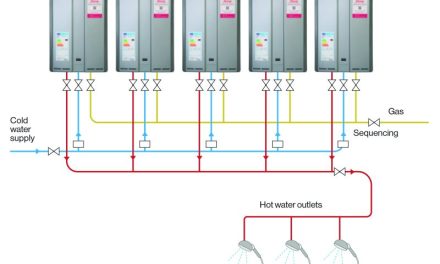LEW Castings is a manufacturer and metal casting company from the market town of Rochdale in Greater Manchester. Employing 21 people, the small business manufactures both ferrous and non-ferrous sandcastings and diecastings, using a wide range of materials and a diverse range of processes. With ten furnaces running nine hours a day and six holding molten aluminium overnight, energy consumption has a huge impact on the profitability of the company.
Energy fees represent a huge sum on the balance sheet for businesses large and small, especially those that use machinery or need to heat large premises. For LEW, energy consumption represented five per cent of the company’s annual turnover. As long-time energy customers of Schneider Electric, LEW knew and appreciated its smart power systems and progressive partnership approach in achieving energy efficiency. LEW also knew any reduction to the energy costs would be a big boost to the bottom line.
“Energy consumption is of course a significant business expense,” said Alan Scarfe, director, LEW Castings. “Reducing cost was our primary goal and as a small business we struggled to secure the kind of cost efficiencies that larger buyers can. We wanted to reduce costs but risk, energy expertise and buying power were holding us back.”
LEW transferred to Schneider Electric’s Energy Risk Management programme in October, 2013. Rather than continue with the traditional, fixed price contract, LEW saw the benefit of working with Schneider Electric on a flexible contract, based on wholesale energy prices. LEW joined Schneider Electric’s Risk Managed Portfoilo, joining a number of customers that have a similar energy spend. However directly tying their energy consumption price to ever-changing natural gas prices and fluctuating electricity demand patterns involved a shift in the risk the company was taking on. Schneider Electric’s expert advisors were critical to achieving LEW’s goal of reducing electricity spend over time whilst balancing the risk that this new approach exposed them to.
“Many business customers want the peace of mind that comes with knowing energy costs will be exactly what they expected and what they budgeted for, and are happy to pay a premium for this guarantee. However, contracts that track to wholesale prices can offer significant rewards when it comes to cost saving. The key for all businesses is balance. Knowing exactly how much risk they are happy to be exposed to when traded off against the potential benefits, is essential,” commented Matthew Teece, client manager, Energy and Sustainability Service at Schneider Electric.
In the Risk Management programme, advisors helped LEW determine its risk profile, setting their ‘Risk Limit’ and putting the business in the right category for it’s spend and appetite for risk.
“Partnering with Schneider Electric for advice and management of our flexible contract made sense. Already in year one we couldn’t be happier with the results,” Scarfe said.
The Schneider Electric Risk Management programme provides smaller organisations with the energy purchasing opportunities typically commanded by much larger businesses. Unlike the traditional fixed-price contract, LEW were able to take advantage of the kind of contract previously unattainable to customers not spending £1m plus per annum. Utilising Schneider Electric’s award-winning Value at Risk model, LEW enrolled in a flexible 3-year contract. The agreement protects the company during times of market price inflation, yet also allows it the benefit of a rate reduction when market prices fall.
LEW are protected by a Risk Limit, which was established on the day Schneider Electric began to manage the contract. The Risk Limit is the wholesale commodity price on day one, plus 15%. Whatever happens to the market, even if the market spikes on day one and never recovers, this limit cannot be breached. It acts as a ceiling and a worst-case scenario cost of the commodity they are purchasing. Under this agreement Schneider Electric automatically hedges, buys or fixes the customer’s position before the limit is breached.
“In reality the customer is never likely to reach their worst case cost. The Risk Limit is set to give protection against any significant prices rises,” commented Teece.
“After transferring to the Risk Management Portfolio in late 2013, we have taken advantage of lower wholesale energy costs throughout 2014. This has resulted in a 7.6% saving on our electricity spend in the first eleven months of the year,” Scarfe said.
By signing a three-year contract LEW has been able to see the benefit of predictable and sustained savings on energy expenditure as well as stable risk assessment.
“By joining the Risk Management programme, we have benefited from Schneider Electric’s expert advice as well as reduced costs. I appreciate how the team has taken control of our energy requirements, freeing up our time and resources to focus on growing our business,” Scarfe added.




